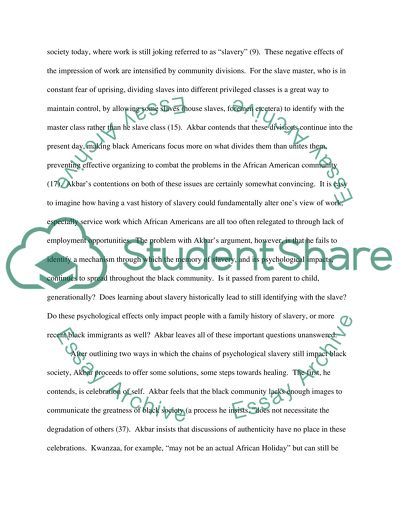Breaking the Chains of Psychological by Na'im Akbar Essay. Retrieved from https://studentshare.org/literature/1432374-breaking-the-chains-of-psychological-by-na-im
Breaking the Chains of Psychological by Na'Im Akbar Essay. https://studentshare.org/literature/1432374-breaking-the-chains-of-psychological-by-na-im.


